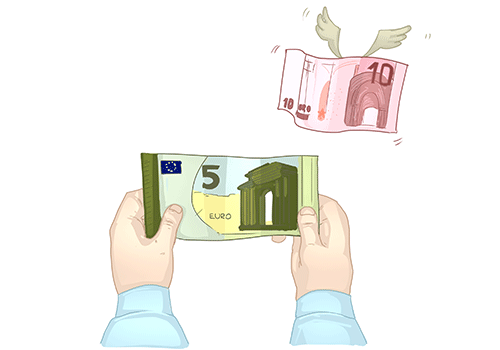Greek
Ελληνική γλώσσα
Ελληνική γλώσσα
About 13 million
Greece including the Monks’ Republic of Mount Athos (10 million), Cyprus (together with Turkish) (0.8 million), EU
Albania, Italy, Armenia, Hungary, Romania, Turkey, Ukraine
Australia, Austria, Bahamas, Bulgaria, Canada, Czech Republic, Democratic Republic of the Congo, Djibouti, Egypt, France, Georgia, Germany, Jordan, Kazakhstan, Libya, Macedonia, Malawi, Mozambique, Paraguay, Poland, Romania, Russian Federation, Sierra Leone, South Africa, Sweden, Tunisia, United Arab Emirates, United Kingdom, United States


Greek is the living European language with the longest unbroken written tradition. The main stages of development of Greek until the creation of modern Greek can be summarized as follows:
Proto-greek, which emerged and existed in the time frame 2200 – 1600 BC
Mycenean civilization in the period 1600 – 1100 BC. The linear B script is from this time.
The 'dark ages' after the Doric invasion in the period 1100 – 700 BC
Ancient Greek in the period 700 – 300 BC
Koiné Greek (κοινή) in the period 300 bc – 330 AD
Byzantine (Post-hellenic) Greek in the period 330 – 1000 AD
Medieval Greek in the period 1000 – 1600 AD
Greek in the Ottoman period 1600 – 1800 AD
Modern Greek in the contemporary states of Greece and Cyprus
Interestingly, the form of Greek spoken by most people and known as Demotic (δημοτική - dīmotikí) only gained primary official status in the 1970s. Previously official favour was given to a purist variety called Katherevousa (καθαρεύουσα - katharévousa) that was very different from educated everyday usage.
Today, standard Modern Greek is less standardized than most other European national languages with alternate forms for many grammatical forms. A few examples of the kinds of alterations are as follows.
In the brief overview, only the most widely used endings are given.
The accent in Modern Greek can be located on the last, next to last or at most on the third syllable from the end of the word.
A complicated system of written accents in Ancient Greek has been replaced in the modern language with a simple system with one accent, the acute. Words of more than one syllable mark the accented syllable or syllables and the accent is also used to distinguish a few one-syllable homophones.
There are definite articles for both singular and plural while the indefinite articles are the same as the number one and only appear in the singular. Articles are very widely used and appear with possessives, demonstratives and with proper names.
Adjectives agree in case, gender and number with the nouns they modify while many numbers are invariable.
Comparative and superlative forms are made either by adding a suffix which contains the sequence –τερ- (-ter-) before the ending or adding the word πιο (pio, 'more') before the adjective.
Regular (comparative) superlatives are formed by adding the definite article to the comparative.
There is also another superlative, sometimes called the absolute superlative formed with a suffix containing the sequence –τατ- (-tat-). Altogether this produces four degrees of comparison.
|
Positive smart
|
Comparative smarter
|
Comparative superlative (the) smartest
|
Absolute superlative extremely smart
|
|---|---|---|---|
| έξυπνός, -η, -ο | εξυπνότερος, -η, -ο | ο, η, το εξυπνότερος, -η, -ο | εξυπνότατος, -η, -ο |
| éxypnós, -ī, -o | exypnóteros, -ī, -o | o, ī, to exypnóteros, -ī, -o | exypnótatos, -ī, -o |
Verbs are conjugated in three persons and two numbers. Modern Greek has no infinitive and uses a conjunction and finite verbs, as in προτιμώ να πάω (protimṓ na páō, 'I prefer to go'. lit. I prefer that I go). In dictionaries, verbs are listed by the first person singular present tense form, such as γράφω (gráfō, 'I write') for write.
Modern Greek has two voices, active and medio-passive the later of which serves the function of passive voice as well as having reflexive meanings.
Modern Greek has one present, four past and three future tenses. The distinction between finished and ongoing actions is important in both past and future tenses as in έγραψα (égrapsa, 'I wrote it (I'm finished)') and έγραφα (égrafa, 'I was writing it (and hadn't finished)').
Adverbs are uninflected. Adverbs derived from adjectives have the same form as the neuter plural nominative. Like adjectives comparative forms can be made with an ending or by adding a separate word.
Modern Greek dialects began to be studied by the end of nineteenth century. In the beginning, researchers made the basic mistake of thinking that Modern Greek dialects are directly descended from Ancient Greek dialects which was not the case. Modern Greek dialects were formed from the koiné of Alexander the Great.
Many Modern Greek dialects have been created during times of symbiosis of the Greek language with other languages such as Latin, Venetian, Italian, Turkish, Albanian and the Slavic languages.
This map presents dialects that were created with Greek and foreign linguistic elements. They are present and spoken in Greece currently:








